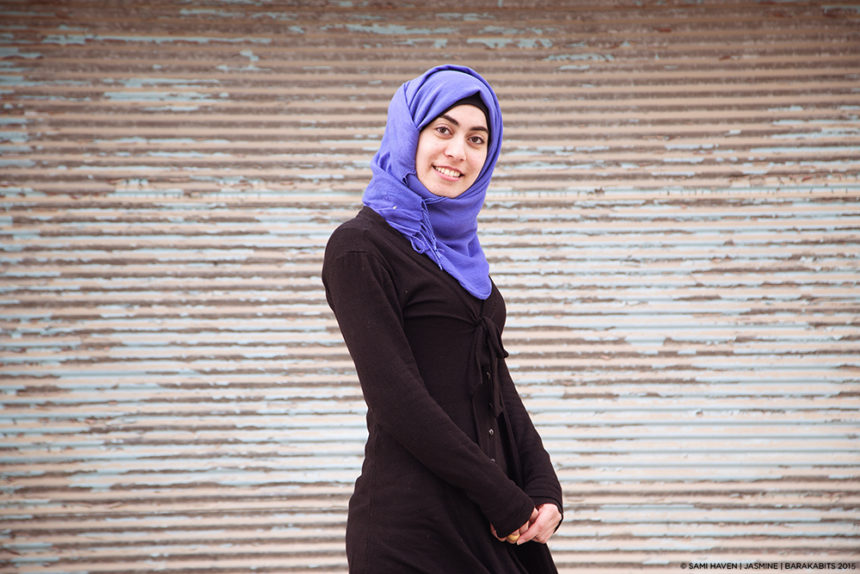I met Dina during my brief stay in Jordan, as I traveled to the border town of Mafraq, close to the Syrian frontier. She is 22 years old, and when she arrived to this run-down city one year ago, she had already relocated 25 times across different areas in Syria, trying to escape the conflict that has drowned the country for the past four years.
Nothing in her voice, her warm hugs, and the pristine smile that lights up her face reveals the struggles this young girl had to face. Her family had fled their hometown of Homs towards Damascus in 2011, but as the conflict spread to the capital city, they decided to move to Aleppo and keep relocating until, in 2014, they sought refuge in Jordan.
Dina had been volunteering in Damascus, distributing food and clothes to victims of bombings, and later in Aleppo, where she helped open a school. But as she arrived to Mafraq, she was puzzled to find herself at the other end of the “help chain”.
“As soon as we got here, some people came to help us. And I started crying and laughing at the same time; I was shocked. When they asked me why I was crying, I told them that it’s because I am the one who is supposed to help. I am not just a victim, I also want to help people and change the world,” she tells me. When she arrived, Dina did not speak English, nor did she have a university degree. She had registered at university in Damascus, but as war began, she was forced to leave. Her grit, however, turned out to be more powerful than any certificate, and the man receiving her at the registry office promised to help.
In three months, Dina mastered the English language and climbed her way up working at a local charity, until she was hired by an international aid organization that helps refugees –like herself. “Learning English was not that difficult, I remember writing every new word I heard on my notebook, and I managed to learn quickly,” she recalls.
According to UNHCR, Mafraq is home to over 70,000 Syrian refugees, although unofficial statistics indicate that the real figure doubles the local population of 85,000. As Jordan is not a signatory to the Geneva Convention on Refugees, most of them reside in the country as asylum seekers until they are resettled in other countries, and are therefore not allowed to work. But, with a volunteer contract and her monthly income, Dina manages to support her parents and siblings every month. “Refugees here can only work in organizations, small projects, or at the kitchen,” she explains.
The psychological scars of war are indelible to Dina, who still remembers how she and her brothers had to hide inside the closet while hearing the building behind their home collapse. “Sometimes I feel I am 100 years old because of all the things I’ve experienced. But I feel happy because I know that I am a few of the lucky ones to have a job,” she says, as she surprises us with her scheduled activities on Saturdays, when she volunteers to collect items to be sent to Syria.
A previous version of this article was published on BarakaBits in March 2015. Photography by Sami Haven.
*In order to preserve the identity of the interviewee, her name has been changed.





Leave a Reply